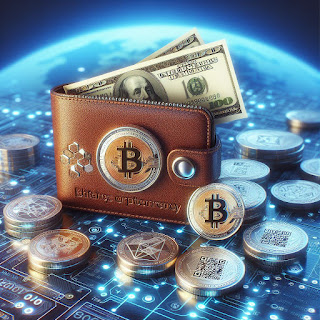Understanding Decentralized Finance (DeFi): Revolutionizing Financial Systems
In recent years, the world of digital currencies has witnessed a significant emergence of the concept known as Decentralized Finance (DeFi), which promises to revolutionize traditional financial systems. DeFi represents a new model of finance aimed at recreating traditional financial systems using blockchain technology, enabling global accessibility, higher efficiency, reduced costs, and enhanced transparency.
What is DeFi?
DeFi refers to a financial system built on blockchain technology that aims to disintermediate traditional intermediaries and create a decentralized financial infrastructure. This technology is characterized by absolute transparency and direct interaction between users without the need for intermediaries.
Key Components of DeFi
Decentralized Exchanges (DEXs):
Decentralized exchanges operate without intermediaries, allowing users to trade cryptocurrencies directly with each other. Examples include Uniswap, SushiSwap, and others, which facilitate automated and permissionless transactions.
Lending and Borrowing Protocols:
DeFi platforms offer lending and borrowing services through smart contracts, enabling users to lend their assets and earn interest or borrow assets against collateral without the need for traditional banks.
Stablecoins and Oracles:
Stablecoins are cryptocurrencies designed to maintain price stability by pegging their value to a stable asset like fiat currency or commodities. Oracles are trusted sources that provide external data to blockchain smart contracts, ensuring they operate based on accurate real-world information.
Automated Market Makers (AMMs):
AMMs are algorithms that facilitate the exchange of cryptocurrencies through liquidity pools rather than traditional order books. They automate trading and provide liquidity, allowing users to trade assets seamlessly.
Benefits of DeFi
DeFi offers several advantages over traditional finance, including:
Accessibility: Anyone with an internet connection can access DeFi services.
Efficiency: Transactions are faster and can be executed 24/7.
Lower Costs: Reduced fees compared to traditional financial services.
Global Reach: DeFi is accessible globally without geographic restrictions.
Challenges and Risks
Despite its benefits, DeFi faces challenges such as regulatory uncertainties, smart contract vulnerabilities, market volatility, and potential risks associated with new and evolving technologies. Security breaches and hacks have been notable concerns within the DeFi ecosystem.
Future Outlook
The future of DeFi looks promising, with ongoing innovations aimed at addressing scalability, interoperability, and regulatory compliance. As the technology matures, DeFi has the potential to become a mainstream financial alternative, attracting institutional investors and expanding its user base globally.
Conclusion
Decentralized Finance (DeFi) represents a paradigm shift in the financial industry, offering a decentralized, transparent, and efficient alternative to traditional financial systems. While challenges exist, the potential benefits of DeFi in democratizing finance and fostering innovation are substantial, making it a crucial space to watch in the coming years.




